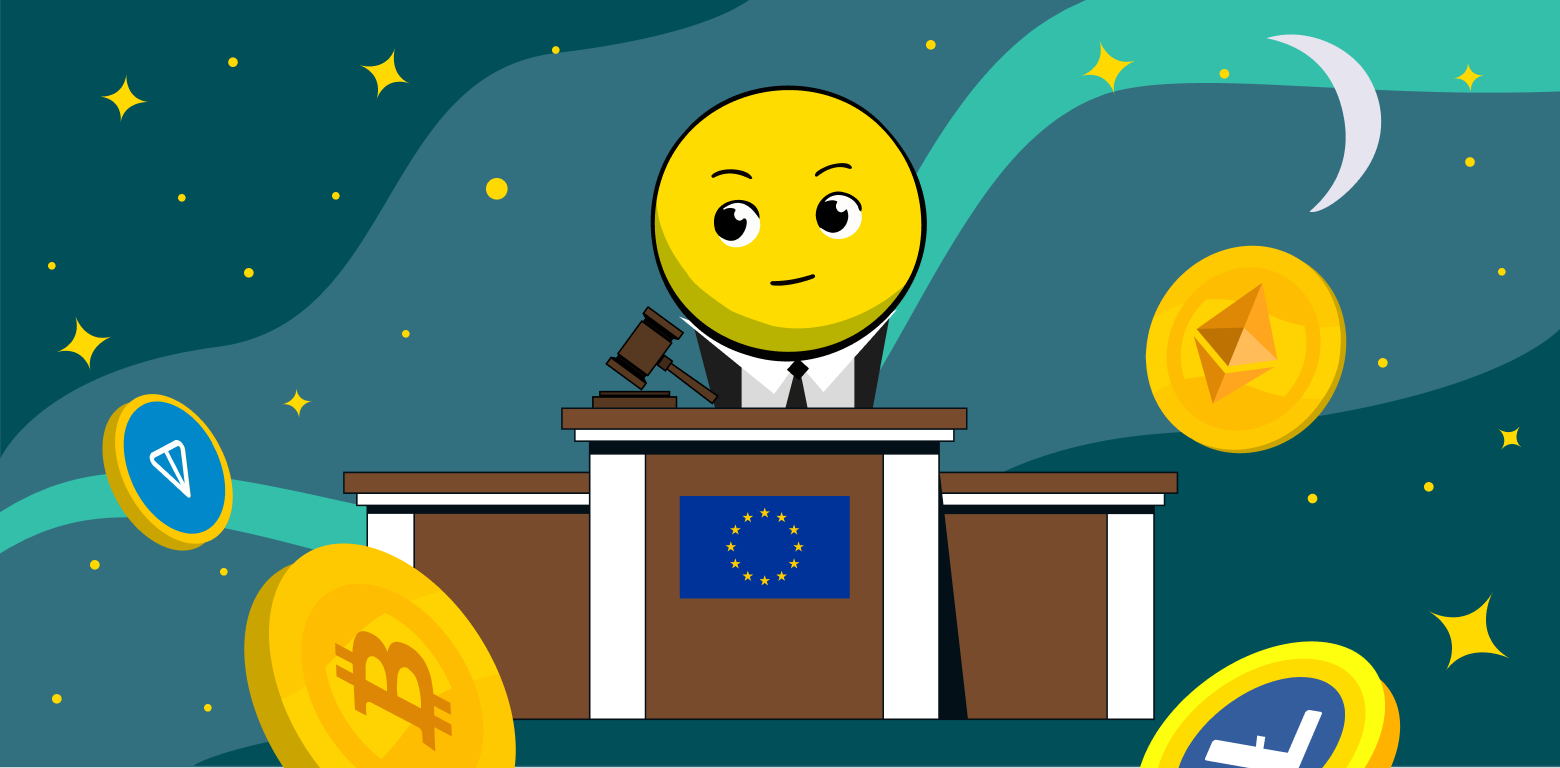
For the past few weeks, the crypto world has been abuzz with the news of El Salvador’s official adoption of Bitcoin as legal tender. But why is it such a big deal? Let’s review the regulatory situations concerning digital money, look at why cryptocurrencies are special among them, and in the process find out what makes El Salvador’s case so unique.
Types of Digital Money
There are many kinds of digital money, many of which differ only in detail. So, for the purposes of this article, they can be roughly divided into three groups: centralized virtual currency, central bank digital currency, and cryptocurrency.
Centralized Virtual Currency
This is a type of currency that is accepted in some environments, like online game communities. Such currencies have a central authority that has the right to mint them and impose policies — for example, the publisher of the game. Those are not usable in the world outside the community, and there’s no real chance of any government to adopt any of them.
Central Bank Digital Currency
Central bank digital currency (CBDC) has been widely discussed in several countries for a long time. It’s a fiat currency that’s supposed to be minted digitally, not corresponding with the physical bank reserves but “in parallel” with them. On its face, a digital currency that is accepted as legal tender sounds innocent enough and incredibly convenient, as it’s basically an official endorsement of the touchless payment systems liked by many people already.
However, depending on the country, CBDC can be used as a part of a larger effort to regulate the payments market within its territory. One of the most obvious examples of this is China, whose digital renminbi has been in the works since 2014 and is slated for the country-wide rollout in 2022. At the same time, China has been slowly tightening regulations on cryptocurrencies, banning crypto exchanges, prohibiting financial institutions from dealing with crypto, clamping down on crypto mining. There’s no reason to assume that those regulations will loosen any time soon; if anything, it seems like China is looking to offer its citizens the user experience associated with crypto, but replaced with the CBDC, and drive the crypto community out of the country.
Cryptocurrency
Obviously, this is the most interesting (and intriguing) one. After starting out as just a small subgroup of virtual currencies, crypto can be said to have won its unique position among digital money.
As opposed to most virtual money, its use is not limited to one community (even if some opponents claim that the only people using cryptocurrency are criminals and drug lords — we all know it isn’t true). On the other hand, most governments are wary of crypto, and probably rightfully at that, as it’s unregulated (more than that, even if you wanted to regulate it somehow, nobody understands yet how to do it in practice) and can be used to avoid capital control.
The cryptocurrency case is a curious one, as it’s been invented with the exact purpose of being a decentralized, non-governmental form of money, but at the same time, crypto developers and users are clamoring for the widespread crypto adoption (and there’s nothing wrong with that, obviously). But the adoption trend contradicts the initial idea of crypto, which is evidenced by the high-profile clashes between the regulators and crypto communities. We will probably see many more of those in the future, although there can always be exceptions.
Regulatory Practices: A Short Overview
We have looked at three types of electronic money. Now let’s quickly lay out what people and institutions may or may not be allowed to do with it in general, before talking about what’s being done in reality.
Without diving deep into the regulatory waters, we can say that there’s basically a spectrum: the asset (or currency in this case) can be banned outright within a certain country, under the fear of criminal proceedings; it can be fully legal (for currencies — with the status of legal tender); or it can be somewhere in between.
- A government can ban a class of asset, citing lack of regulation, caring about the citizens, or some traditions prohibiting the use of this asset.
- The governments that are open to more nuanced interpretation of the laws may put some partial restrictions, for example, on banking or use as a payment tool, or just discourage the use of an asset without passing formal regulations.
- Others can allow any use of an asset in the private sphere, while not wanting anything to do with it in public and governmental affairs.
- And on the extreme end of this spectrum is full adoption of an asset class with the full backing of the government.
We mentioned the status of legal tender several times here, so to give a quick definition — to be legal tender means for a currency to be accepted in the settlement, or tender, for all debts within the country. This means that the government fully supports the currency, and because of it it’s usually widely accepted by various institutions and merchants. This is why being legal tender is a big deal.
The State of Digital Money Regulation in 2021
In practice, the discussion about the digital money regulatory status can be reduced to the question concerning only cryptocurrencies. As any centralized virtual money existing now is essentially private, it’s obvious that it’s not going to enjoy full legal status anytime soon. Virtual money is not banned in most countries (with some exceptions like Algeria and Morocco, where any form of it is illegal), but at the same time, it’s not accepted outside of its community of origin. Central bank digital currency, as opposed to virtual money, is basically obligated to have a full legal tender status, because anything less defeats its purpose.
Cryptocurrency regulation, until very recently, could fall on any point of the spectrum described in the previous section — except being backed by the government. Crypto has been banned fully (like, for example, in Egypt, Bolivia, or Nepal), legal (like in the US, Australia, and most of the EU), or partially regulated, taxed, etc. all around the globe. But only in 2021 it became adopted as legal tender for the first time, in El Salvador.
So, What’s the Deal with the El Salvador Bitcoin Law?
El Salvador is a small Central American country without its own fiat currency, choosing to use the US dollars instead. This has some consequences for the economy: for example, simply put, the El Salvador government has too much debt and too few reserves — not a good situation for the government to be in. To fix the economy somewhat, El Salvador needs to attract new investors.
Many El Salvadorians live and work abroad and send remittances to their families, which is good for the economy, but this process is usually slow and difficult; besides, much of the population is unbanked.
These considerations, among others, led El Salvador’s government to propose officially adopting Bitcoin. This, they argued, would revitalize the economy, bringing the new investments and allowing unbanked citizens to manage, send and spend their money more efficiently. In June 2021, El Salvador President Nayib Bukele put the cryptocurrency adoption law through Congress, and on Tuesday, September 7, it went into effect.
The Bitcoin adoption in this country is surrounded by controversy. For example, El Salvador Bitcoin wallet Chivo, officially endorsed by Bukele, has some corrupt officials on its management team, not to mention the accusations of the El Salvador President of being corrupt himself — or, at the very least, a populist. Many people felt the crypto volatility as well — new Chivo owners in El Salvador received $30 in Bitcoin on signup, only to see it lose more than 15% of its value in one day. These and many other “hiccups” led to El Salvadorans protesting Bitcoin adoption and Bukele personally. One of the biggest protests happened on September 15, when El Salvador is celebrating its independence from Spain.
Despite the somewhat botched execution in this case, it doesn’t seem to be fair to summarily reject the idea of the governmental adoption of crypto. Other countries have been carefully expressing their interest in following El Salvador’s suit — although, hopefully, if they do, they will learn from each other’s mistakes. Besides, the El Salvadoran story itself is far from over right now, and the potential good effects of Bitcoin adoption, noted at the beginning of the discussion, may still be realized. So, it seems like we need to watch the situation some more to decide whether it’s going to be a net positive.
Final Thoughts
El Salvador Bitcoin adoption move, while controversial, is also inspiring. The issues we touched upon in this article show that currently, among all digital currencies, crypto is the biggest headache for regulators all over — but for many people, it’s exciting to see what happens next in this new world. The crypto adoption does seem like the final frontier for now, doesn’t it? We will write more about this topic, as the stories unfold — so stay tuned.




